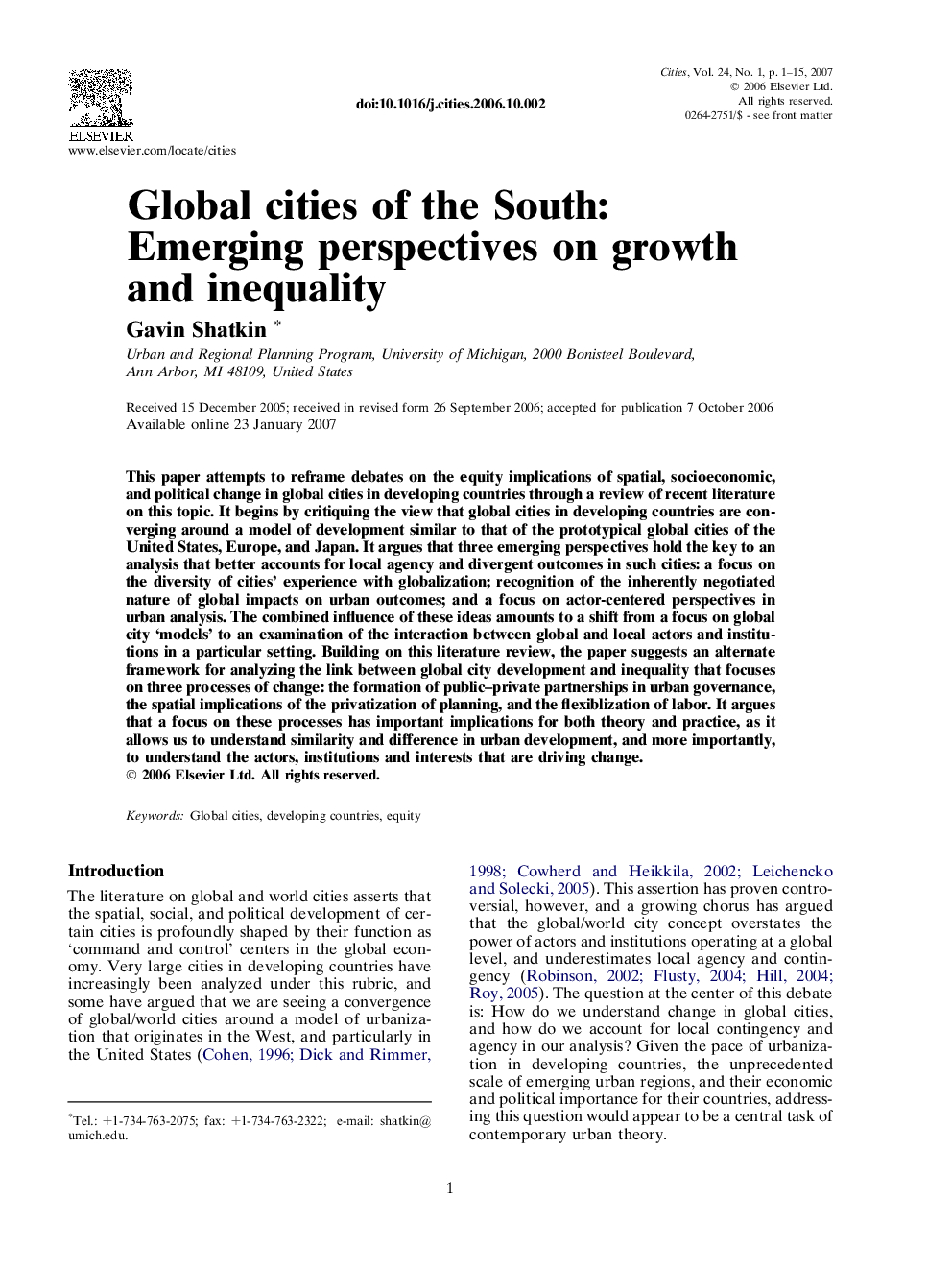| Article ID | Journal | Published Year | Pages | File Type |
|---|---|---|---|---|
| 1008860 | Cities | 2007 | 15 Pages |
This paper attempts to reframe debates on the equity implications of spatial, socioeconomic, and political change in global cities in developing countries through a review of recent literature on this topic. It begins by critiquing the view that global cities in developing countries are converging around a model of development similar to that of the prototypical global cities of the United States, Europe, and Japan. It argues that three emerging perspectives hold the key to an analysis that better accounts for local agency and divergent outcomes in such cities: a focus on the diversity of cities’ experience with globalization; recognition of the inherently negotiated nature of global impacts on urban outcomes; and a focus on actor-centered perspectives in urban analysis. The combined influence of these ideas amounts to a shift from a focus on global city ‘models’ to an examination of the interaction between global and local actors and institutions in a particular setting. Building on this literature review, the paper suggests an alternate framework for analyzing the link between global city development and inequality that focuses on three processes of change: the formation of public–private partnerships in urban governance, the spatial implications of the privatization of planning, and the flexiblization of labor. It argues that a focus on these processes has important implications for both theory and practice, as it allows us to understand similarity and difference in urban development, and more importantly, to understand the actors, institutions and interests that are driving change.
